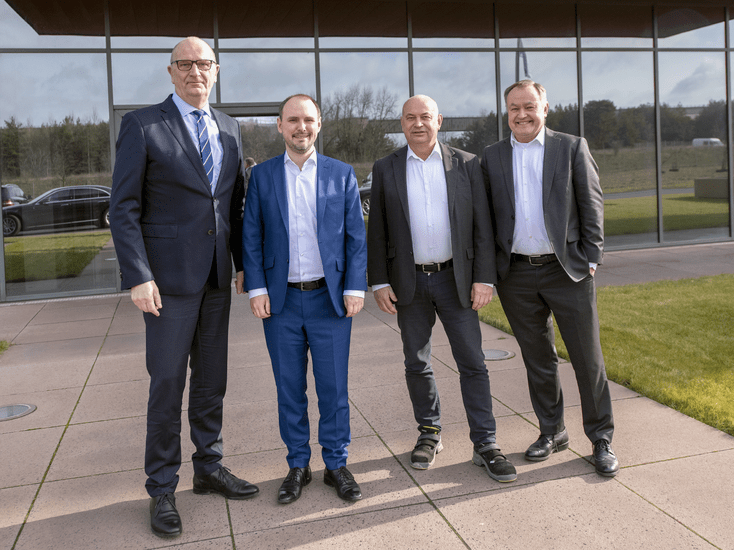At its Brandenburg location, Progroup is demonstrating how consistent recycling management works. The company not only produces extremely sustainably recyclable paper there. Thanks to our own waste-to-energy power plant, there is a complete zero-waste principle. Prime Minister Dietmar Woidke was also impressed by this during his visit.
Around 650,000 tons of corrugated base paper leave the state-of-the-art PM2 paper mill every year. These are special papers developed by Progroup, so-called Next-Fibre products. They are manufactured exclusively on the basis of waste paper without the addition of fresh fibre. Compared to standard paper, they are significantly lighter and still extremely powerful – a material advantage that is noticeable, for example, during transport and saves CO 2 . And after use, they can be completely returned to the material cycle as waste paper.
“As a family company, we have an obligation to future generations. It is therefore our aim to use resources responsibly,” says Maximilian Heindl, CEO at Progroup. “This can be seen both in our sustainable papers and in their production.” In order to produce extremely environmentally friendly and economically, Progroup relies on innovative high-tech machines.
The head of government of Brandenburg saw this for himself during a tour of the paper factory.
Energy-independent thanks to its own waste-to-energy power plant
The neighboring waste-to-energy power plant supplies the energy for paper production. It thermally utilizes so-called rejects – i.e. residues that come from paper production and from industry – and thus supplies the entire PM2 with hot steam. The power plant also produces electricity. The amount of electricity generated corresponds to around 50 percent of the electricity requirements of the PM2. In this way, Progroup reduces the use of fossil fuels and saves a significant amount of CO 2 .
“The current situation, in which we are confronted with skyrocketing energy costs and debates about an early phase-out of coal, shows once again that we need sustainable solutions quickly that make us energy independent and that also help us with a view to climate change,” he said Woidke. “With the forward-looking zero-waste principle here at the site, Progroup is making an important contribution to this.”
The company has been represented in Eisenhüttenstadt with the paper factory PM2 since 2010. Just one year later, the power plant went into operation there. A total of 750 million euros flowed into the two projects and the company has created around 200 state-of-the-art jobs. “This makes Progroup a strong economic force,” said the Prime Minister, “and a great asset for the region.”
In order to promote the concept of recycling even more and to continuously reduce the use of fossil fuels, Progroup is already transferring the zero-waste principle, which has been successful in Brandenburg, to the next location: construction of the next power plant is just beginning at the PM3 paper mill in Sandersdorf-Brehna . By 2045, the company will be completely carbon neutral .





